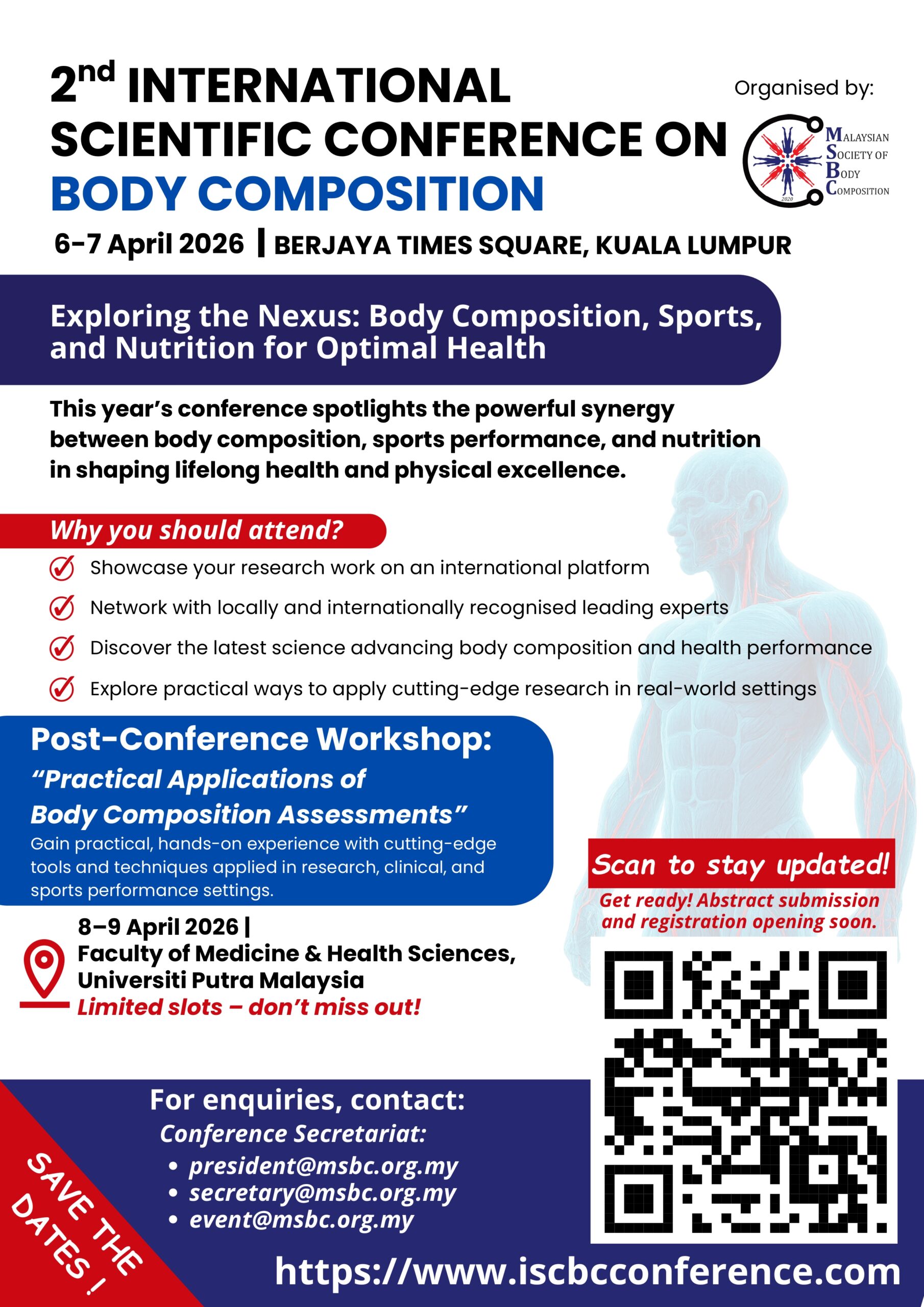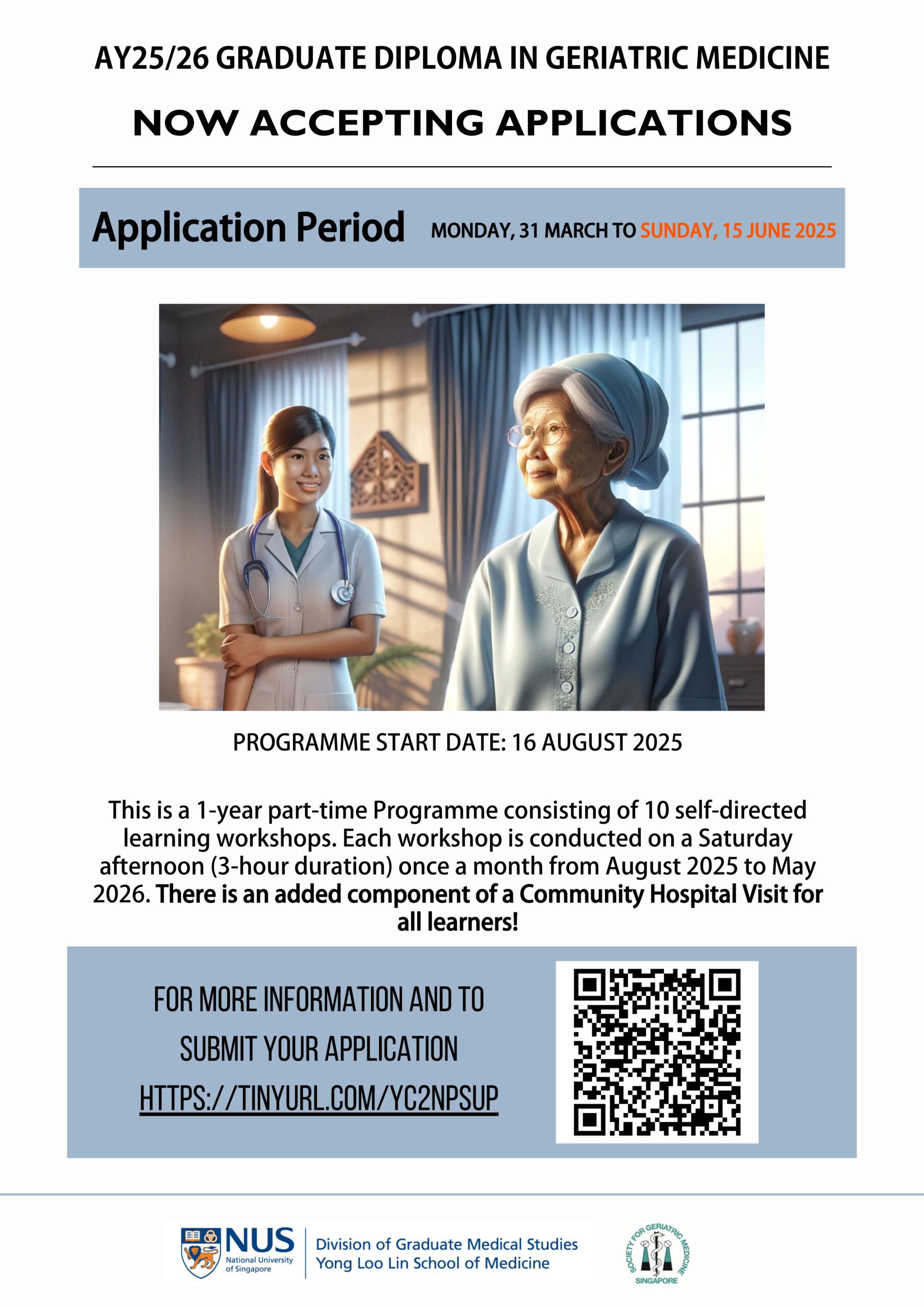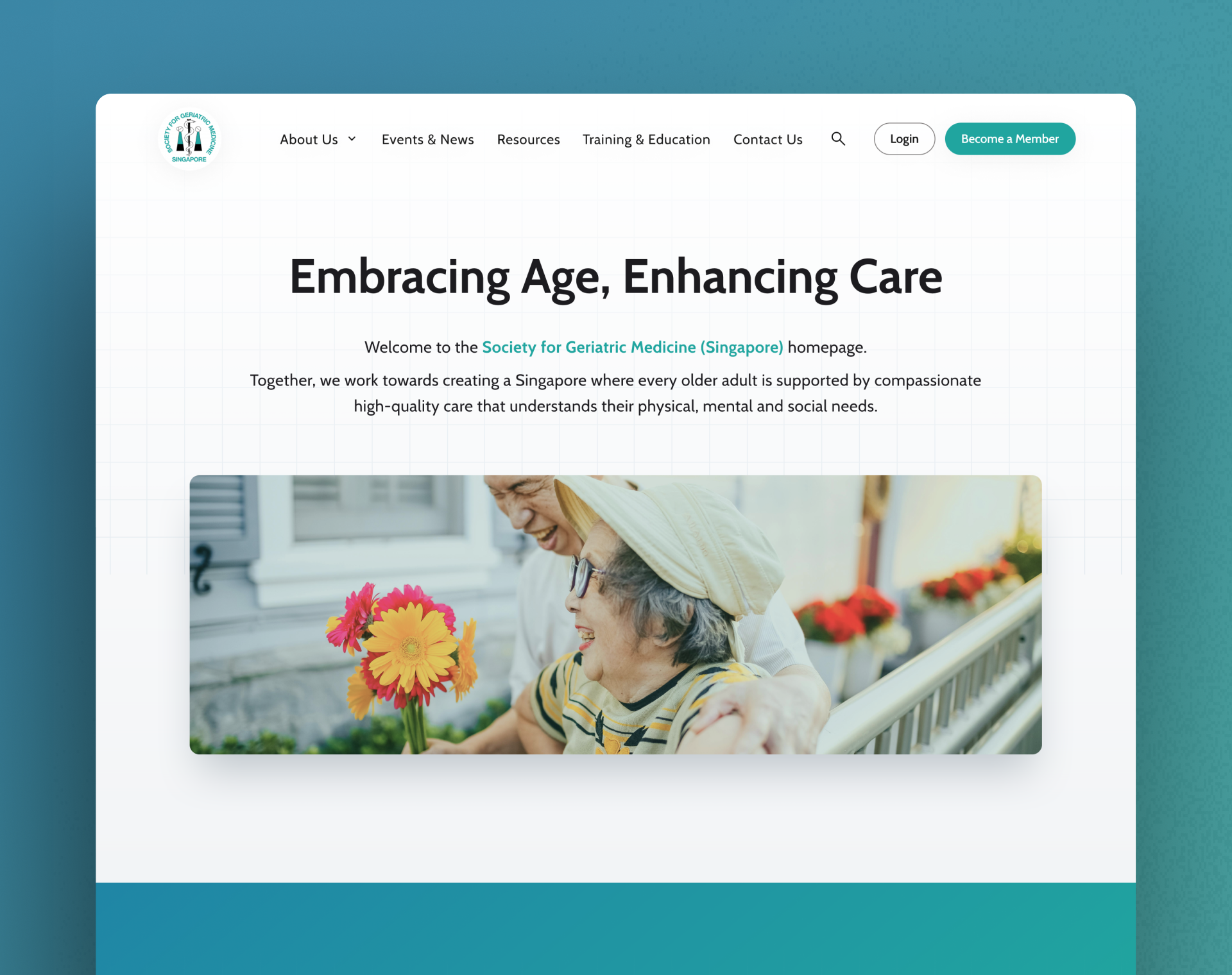Embracing Age, Enhancing Care
Welcome to Society for Geriatric Medicine (Singapore).
Together, we work towards creating a Singapore where every older adult is supported by compassionate high-quality care that understands their physical, mental and social needs.





